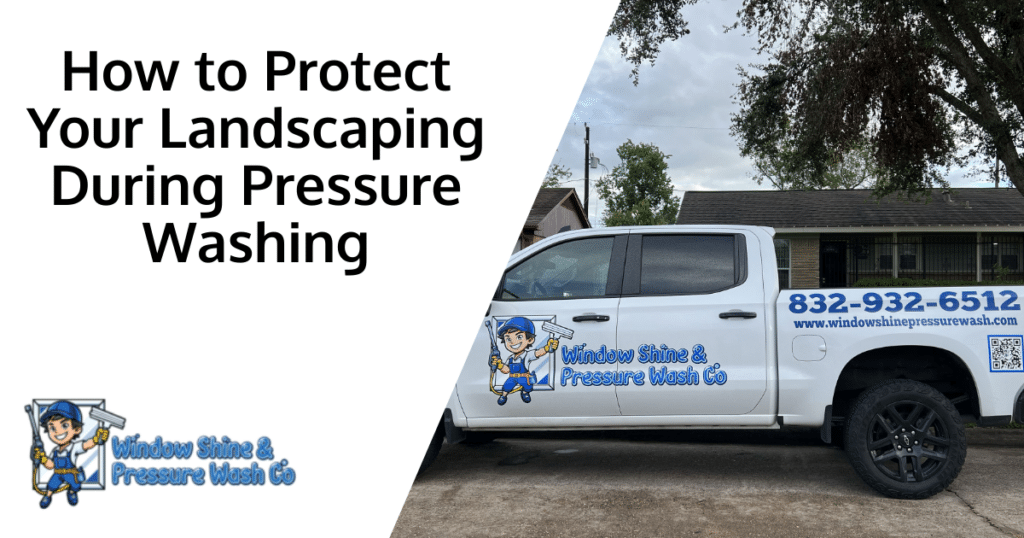Pressure Washing Company
Provide insight on what to look for when hiring a professional pressure washing company, emphasizing factors like credential verification, expertise, and industry familiarity.
- What credentials should a reputable pressure washing company have?
- Why is industry experience significant?
- What questions should you ask a potential service provider?
Estimated Word Count: 200
Understanding Pressure Washing and Landscaping
Pressure washing is a cleaning method that uses a high-pressure mechanical sprayer to remove dirt, mold, loose paint, mud, grime, and dust from objects and surfaces like buildings, vehicles, and concrete surfaces.
What is Pressure Washing?
Pressure washing, also known as power washing, operates by utilizing a high-pressure water stream combined with a detergent to break down and wash away surface grime. Different from a regular hose, a pressure washer can provide up to 80 times the force of a typical garden hose, providing a powerful tool for tough cleaning tasks.
- The mechanism of pressure washing revolves around the concept of pressure and flow rate. At the core of the unit sits a motor, typically either electric or gas-powered, that powers a pump forcing water at high pressure through a concentrating nozzle to boost its cleaning capability.
- The suitability of surfaces for pressure washing varies, although it’s most commonly used for hard, exterior surfaces such as patios, outdoor furniture, driveways, and siding. This method should not be used on delicate surfaces as it can lead to damage.
- The benefits of pressure washing extend beyond cleanliness. It can protect from harmful substances like mold, mildew, and algae, enhance curb appeal, and prep surfaces for painting or staining.
Impact of Pressure Washing on Landscaping
As effective as pressure washing can be, it also possesses potential hazards for landscaping. The power of the water stream can harm plants and modify soil composition when misused.
- The force from the pressure washing can strip plants of their protective layers, leading to wilting or, in extreme cases, plant death.
- High-pressure water can displace soil and mulch, leading to erosion and potentially altering the soil’s nutrient composition—both of which can impede plant health.
- The most vulnerable landscaping components include flower beds, vegetable gardens, and any features crafted from soft materials like sandstone.
Preparation Steps Before Pressure Washing
Assessing Your Landscape
Before beginning a pressure washing project, the initial step should be assessing your landscape for susceptible areas. This process comprises looking out for easily damaged elements and planning out how to protect them.
- Areas that need special attention are those containing soft plants, delicate décor, and loose or lightly packed soil or mulch.
- Assessing delicate plants typically involves identifying those with soft tissues, those in full bloom, or those already stressed from a pest infestation or disease.
- Using a site map or survey of your property can assist you in identifying areas at risk.
Protective Measures for Landscaping
There are several strategies available to safeguard your plants, soil, garden furniture, and decorations from the force of pressure washing.
- One common method of protecting plants is to cover them with plastic or fabric drop cloths.
- Using boarding around soil and mulch areas can prevent wash away. Similarly, it’s recommended to avoid direct jet spray on loose surfaces.
- For garden furniture and decorations, if they can’t be moved indoors, they should be covered using waterproof tarps.
Pressure Washing Techniques for Minimal Landscape Disruption
Adjusting Pressure Washing Equipment
Some pressure washing tactics and adjustments can be implemented to ensure we keep landscape disruptions to a minimum.
- For landscaped areas, it is advisable to adjust the pressure setting to low or medium to avoid potential harm.
- Modifying the spray pattern can also decrease the impact. Pressure washers typically have a variety of nozzles that manipulate spray pattern and intensity.
- It’s recommended to use a wide-angle nozzle (such as a 40-degree nozzle) to disperse water over a larger area, reducing its impact on targeted surfaces.
Spot Cleaning vs. Broad Cleaning
Depending on your cleaning objectives, different approaches might be more suitable.
- Spot cleaning focuses the cleaning force on a specific, usually small area, making it less likely to impact surrounding landscaping. It’s ideal for removing tough stains or grime in specific areas.
- Broad cleaning, on the other hand, can inadvertently inflict collateral damage on nearby plants and landscape features due to the wide coverage.
- Spot cleaning is most appropriate when dealing with stubborn, localized dirt, stains, or graffiti, or when working near sensitive areas such as gardens.
DIY Pressure Washing vs. Hiring a Professional
Evaluating the Pros and Cons
There are compelling arguments for both DIY and professional pressure washing. Making a choice depends on your individual capacity and circumstances.
- Homeowners might lack the necessary skills to operate a pressure washer safely and effectively. They might also not have the required equipment, leading to additional rental or purchase costs.
- Professionals have the benefit of skill, experience, and specialist equipment, allowing them to complete jobs more quickly and with less risk.
- Choosing DIY can save money upfront, but if anything goes wrong, repair or replacement costs could overshadow initial savings. Professional services, while sometimes more expensive initially, often yield superior results and include job assurance.
Choosing a Professional Pressure Washing Company
When choosing a pressure washing company, there are several factors to consider specifically tailored to match your requirements and to ensure that your property is in safe and capable hands.
- Reputable companies should have proper licensing, adequate insurance, and positive references from previous clients.
- Industry experience offers the professionals the knowledge and expertise that only comes from addressing a variety of situations and challenges.
- Lastly, questions like what cleaning methods they use, their environmental conscientiousness, whether they offer a guarantee, and how they handle breakages or damage should be part of your conversation with potential service providers.

